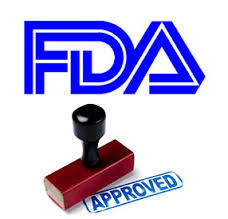- Home
- Editorial
- News
- Practice Guidelines
- Anesthesiology Guidelines
- Cancer Guidelines
- Cardiac Sciences Guidelines
- Critical Care Guidelines
- Dentistry Guidelines
- Dermatology Guidelines
- Diabetes and Endo Guidelines
- Diagnostics Guidelines
- ENT Guidelines
- Featured Practice Guidelines
- Gastroenterology Guidelines
- Geriatrics Guidelines
- Medicine Guidelines
- Nephrology Guidelines
- Neurosciences Guidelines
- Obs and Gynae Guidelines
- Ophthalmology Guidelines
- Orthopaedics Guidelines
- Paediatrics Guidelines
- Psychiatry Guidelines
- Pulmonology Guidelines
- Radiology Guidelines
- Surgery Guidelines
- Urology Guidelines
FDA approves medication for highly drug resistant Tuberculosis

The US Food and Drug Administration (FDA) approved a new medication for treatment-resistant forms of tuberculosis (TB) that affects the lungs, making it the second-ever drug approved under the Limited Population Pathway for Antibacterial and Antifungal Drugs.The Food and Drug Administration has approved Pretomanid Tablets in combination with bedaquiline and linezolid for the treatment of a specific type of highly drug-resistant tuberculosis (TB) of the lungs.
The regimen is collectively known as the BPaL regimen.
Pretomanid in combination with bedaquiline and linezolid is approved for treating a limited and specific population of adult patients with extensively drug-resistant, treatment-intolerant or nonresponsive multidrug-resistant pulmonary TB. Multidrug-resistant TB and extensively drug-resistant TB are difficult to treat due to resistance to available therapies. According to the World Health Organization (WHO), in 2016, there were an estimated 490,000 new cases of multidrug-resistant TB worldwide, with a smaller portion of cases of extensively drug-resistant TB.
The new drug - Pretomanid - cured 89% of 107 patients with extensively drug-resistant TB after 6 months, when used in combination with antibiotics bedaquiline and linezolid.
Significance:
Before the FDA approved this combination therapy, the most common treatment for this type of tuberculosis required patients to take around 30 pills a day plus sometimes daily injections for at least 18 months.
This new treatment lowers that dose to 5 pills/day over 6 months for most patients.
Pretomanid is the second drug to be approved under the Limited Population Pathway for Antibacterial and Antifungal Drugs, or LPAD pathway, established by Congress under the 21st Century Cures Act to advance development and approval of antibacterial and antifungal drugs to treat serious or life-threatening infections in a limited population of patients with unmet need. Approval under the LPAD pathway may be supported by a streamlined clinical development program. These programs may involve smaller, shorter or fewer clinical trials. As required for drugs approved under the LPAD pathway, labeling for Pretomanid includes certain statements to convey that the drug has been shown to be safe and effective only for use in a limited population.
“The threat of antimicrobial-resistant infections is a key challenge we face as a public health agency,” said FDA Principal Deputy Commissioner Amy Abernethy, M.D., Ph.D. “The bacterium that causes tuberculosis can develop resistance to the antibiotics used to treat it. Multidrug-resistant TB and extensively drug-resistant TB are public health threats due to limited treatment options. New treatments are important to meet patient national and global health needs. That’s why, among our other efforts to address antimicrobial resistance, we’re focused on facilitating the development of safe and effective new treatments to give patients more options to fight life-threatening infections. This approval also marks the second time a drug is being approved under the Limited Population Pathway for Antibacterial and Antifungal Drugs, a pathway, advanced by Congress, to spur development of drugs targeting infections that lack effective therapies. We hope we continue to see more development of antibacterial drugs for treating serious or life-threatening infections in limited populations of patients with unmet medical needs.”
Pretomanid can be taken orally in combination with bedaquiline and linezoli.
Pretomanid also received the Qualified Infectious Disease Product(QIDP) designation of Food and Drug Administration . The QIDP designation is given to antibacterial and antifungal drug products intended to treat serious or life-threatening infections under the Generating Antibiotic Incentives Now (GAIN) title of the Food and Drug Administration Safety and Innovation Act.
The Food and Drug Administration granted Pretomanid Tablets Priority Review, under which the FDA’s goal is to take action on an application within an expedited time frame, and Orphan Drug designation, which provides incentives to assist and encourage the development of drugs for rare diseases.
The FDA granted the approval of Pretomanid Tablets to The Global Alliance for TB Drug Development (TB Alliance). With this approval, The Global Alliance for TB Drug Development is awarded a Tropical Disease Priority Review Voucher in accordance with a provision included in the Food and Drug Administration Amendments Act of 2007 that aims to encourage development of new drugs and biological products for the prevention and treatment of certain tropical diseases.
Adverse Reactions
The most common adverse reactions observed in patients treated with Pretomanid in combination with bedaquiline and linezolid included damage to the nerves (peripheral neuropathy), acne, anemia, nausea, vomiting, headache, increased liver enzymes (transaminases and gamma-glutamyltransferase), indigestion (dyspepsia), rash, increased pancreatic enzymes (hyperamylasemia), visual impairment, low blood sugar (hypoglycemia), and diarrhea.
Pretomanid used in combination with bedaquiline and linezolid should not be used in patients with hypersensitivity to bedaquiline or linezolid.

Disclaimer: This site is primarily intended for healthcare professionals. Any content/information on this website does not replace the advice of medical and/or health professionals and should not be construed as medical/diagnostic advice/endorsement or prescription. Use of this site is subject to our terms of use, privacy policy, advertisement policy. © 2020 Minerva Medical Treatment Pvt Ltd